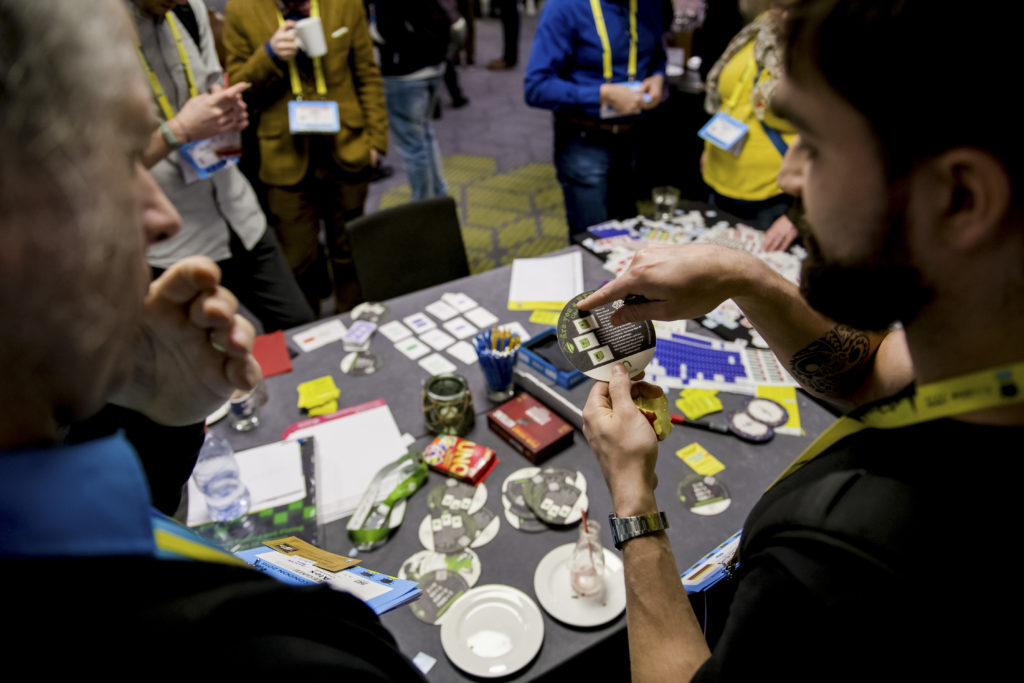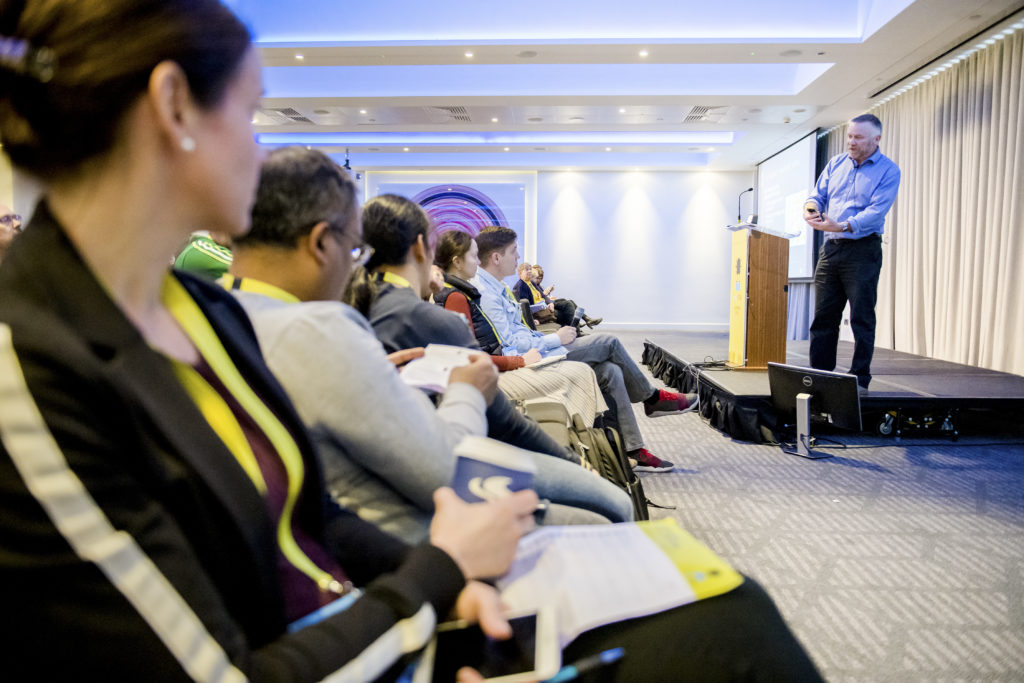This is the concluding blog (read the other review post here) a following my recent participation in the UKSTAR Testing conference in the capacity of a reporter. I wish to focus this blog on the many facets of testing that I experienced and what I took away from this event and have 11 takeaways that I want to share with you.
1) The changing face of testing:
The nature and perception of testing as a function is rapidly changing. From fully manual testing to automation to DevOps, this continues to challenge the testing professionals and requiring us to adapt. In fact we will have to start reinvesting our energies towards exploring new topics of learning, retraining ourselves and venturing in areas that might seem very new or unsettling. Test Management is perhaps a role that is not going to be around very much longer but the skills involved are perhaps as relevant as ever.
2) Importance of innovation:
In a constantly changing world of technology, testing needs to keep up with the changing trends too. It is not just about tagging along with the rest of the industry but also creating path breaking new solutions in our sphere. There is a need constantly to be able to adapt to the latest disruption but also be imaginative in our ideas. We need to have disruptions in our own world of testing and think of fine tuning aspects of our tools like usability.
3) Coming out of the silos:
Testers in the current environment have to broaden their horizons as they play a much more diverse role in current day projects. We need to start getting involved from the design phase and hence participate in conversations that need not be only about testing. In agile teams people need to be able to take on roles which are beyond the definition of their designated position, applying themselves to the best of their abilities. Testing has to integrate more with other project functions but without diluting the content or focus on quality. Hence one aspect is emerging very clearly, testers have to give a fresh approach to their roles. We have to move away from very rigid style / expectation of work to more fluid environments where we are required to demonstrate a well-rounded knowledge about software engineering and be able to influence people effectively on quality related matters

4) The eternal issue of having to justify the value of testing:
There were quite a few sessions which dealt with the idea of how testing is treated as the lowest in the value chain. It is still seen as something that absolutely anybody can do and hence does not require any skill. One of thoughts to address this issue was around how we need to be able to articulate our tasks better to the outside world and that we need to break the myth of testing as a simplistic activity. Testing is an area that requires thought, preparation, planning, analysis, knowledge, experience, communication and much more. We perhaps have to be able to verbalise it better in our environments so other business functions can appreciate and respect testing more.
5) Future of testing:
One of the delegates asked a very good question in a conversation track – how long are we going to do this for, this ordeal of having to explain why testing is important and why it should be treated better in projects / companies. It made me think how perhaps in 10-15 years’ time testing might look like. My hope is for the trends to improve (in favour of testing) as the IT industry gets more mature and the IT project delivery mechanisms get more efficient. I believe a lot of industries have learnt to value quality assurance processes over time. Being a relatively younger industry, we might have some more distance to go before the realisation occurs about the various risks addressed by testing. Till then, we will perhaps have to continue fighting the corner for testing.

6) The value of empathy in our test approach and test design:
As testing steers further towards automation, the most important value we bring to our roles is our aspect of being human. In my personal opinion, as long as we build products that are meant for usage of humans, testers will be required to represent the users.
7) Suitability of solutions:
There have been various technical advancements in testing area but is every idea applicable to every environment? Possibly not. I am sure we all have wondered how relevant is DevOps to our organisation or how automation could be the trick we have been missing in our projects. But there is a point to be noted about whether all organisations are truly ready to ‘shift left’, given the baggage that usually exists around legacy systems. The shift also needs to be in the culture of the environments where we work to support such trends.
8) Automation might be here to stay but so is manual testing:
The insecurity caused amongst testers by automation testing is very real. There are a considerable number of people who are not comfortable with coding. For some it has been a conscious choice to move away from that style of work. They are not exactly happy to change themselves to the point where they can see no real distinction between themselves and the developers. But there is hopefully a growing awareness within businesses of how automation is not the ultimate solution to everything and how unviable an idea it is to automate everything. Manual testing skills like exploratory testing is very much required even in agile projects.
9) Learn from the gurus:
Since attending the event I have been thinking about how important it is to continuously reinvent ourselves and introspect about what we enjoy doing in our professions. The many stalwarts I saw speaking at the event, neither did they have to deliver a talk to prove themselves, nor did they have any direct professional benefits from it. But they genuinely enjoy sharing ideas, influencing the community, stimulate thoughts on something fresh, to help open up minds / discussions / debates, to constantly challenge themselves and stay current. It is so important for us to take time off for such events to get inspiration from such people, to watch some of the seasoned professionals in action, also to see our world from the eyes of someone else which can give a real perspective and bring more creative energy in us.

10) We are in this together:
The sense of community spirit is unmatched in the world of testing. Testers are united in their commonality of interest in quality. No bifurcation can be caused due to technologies we work on or the domains / industries we are a part of. We can relate to each other, no matter what job title or business domain! I have felt very proud witnessing that sense of solidarity in the community.
11) Conference impact:
I thought the true testament for the impact of this conference was what I heard from a person who had recently been through a difficult situation on job front. He said that the event reaffirmed his faith in testing and reassured him that he was in the right industry. That according to me is the power of human interaction which this event created – it can be immensely uplifting. This conference got me thinking about the kind of role that testers can play in any given environment, about how powerful we are in spite of being the eternal underdogs in most project environments, about we are usually in the best position to influence outcomes and bring about a positive change. If not for the conference, I wouldn’t have known about some of the eminent people in the industry who have left me utterly inspired. People who make so many matters seem trivial as they dazzle in the brilliance of their expert knowledge and share it selflessly with others – it is a phenomenon worth experiencing. This event has certainly ignited a spark in me. This experience has been engaging, enthralling and enriching.
Here is my humble appeal to all the testing community members. Please do support and participate in events like UK Star. You never know what it might lead you to! As of this year, this is the UK Star reporter signing off, with huge gratitude for the opportunity.
